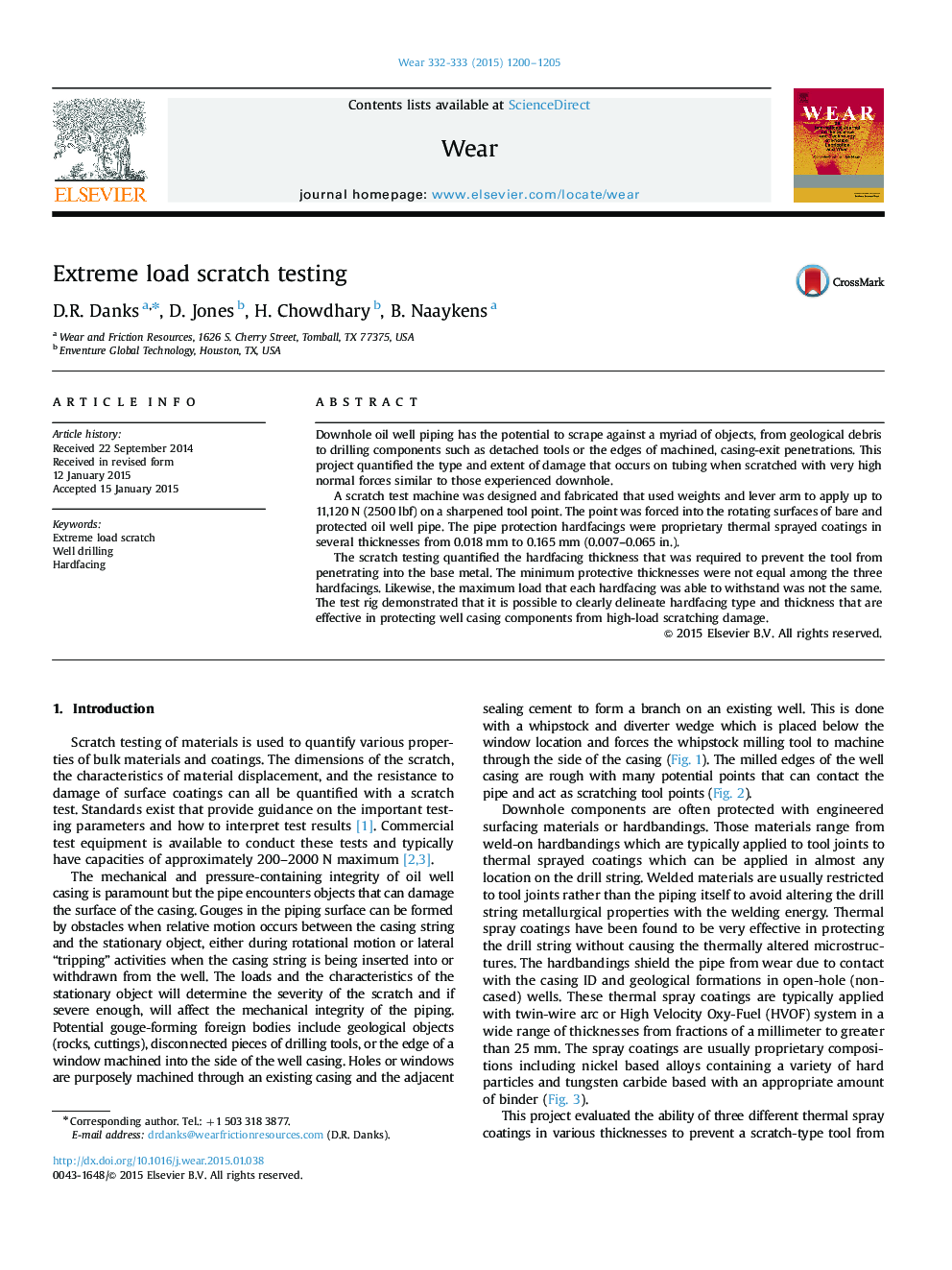| Article ID | Journal | Published Year | Pages | File Type |
|---|---|---|---|---|
| 617132 | Wear | 2015 | 6 Pages |
•Scratch testing of thermal sprayed coatings on down-hole equipment was conducted.•Loads up to 11,120 N were applied to single hardened tool.•Two coating properties determined coating effectiveness: thickness and composition.
Downhole oil well piping has the potential to scrape against a myriad of objects, from geological debris to drilling components such as detached tools or the edges of machined, casing-exit penetrations. This project quantified the type and extent of damage that occurs on tubing when scratched with very high normal forces similar to those experienced downhole.A scratch test machine was designed and fabricated that used weights and lever arm to apply up to 11,120 N (2500 lbf) on a sharpened tool point. The point was forced into the rotating surfaces of bare and protected oil well pipe. The pipe protection hardfacings were proprietary thermal sprayed coatings in several thicknesses from 0.018 mm to 0.165 mm (0.007–0.065 in.).The scratch testing quantified the hardfacing thickness that was required to prevent the tool from penetrating into the base metal. The minimum protective thicknesses were not equal among the three hardfacings. Likewise, the maximum load that each hardfacing was able to withstand was not the same. The test rig demonstrated that it is possible to clearly delineate hardfacing type and thickness that are effective in protecting well casing components from high-load scratching damage.
